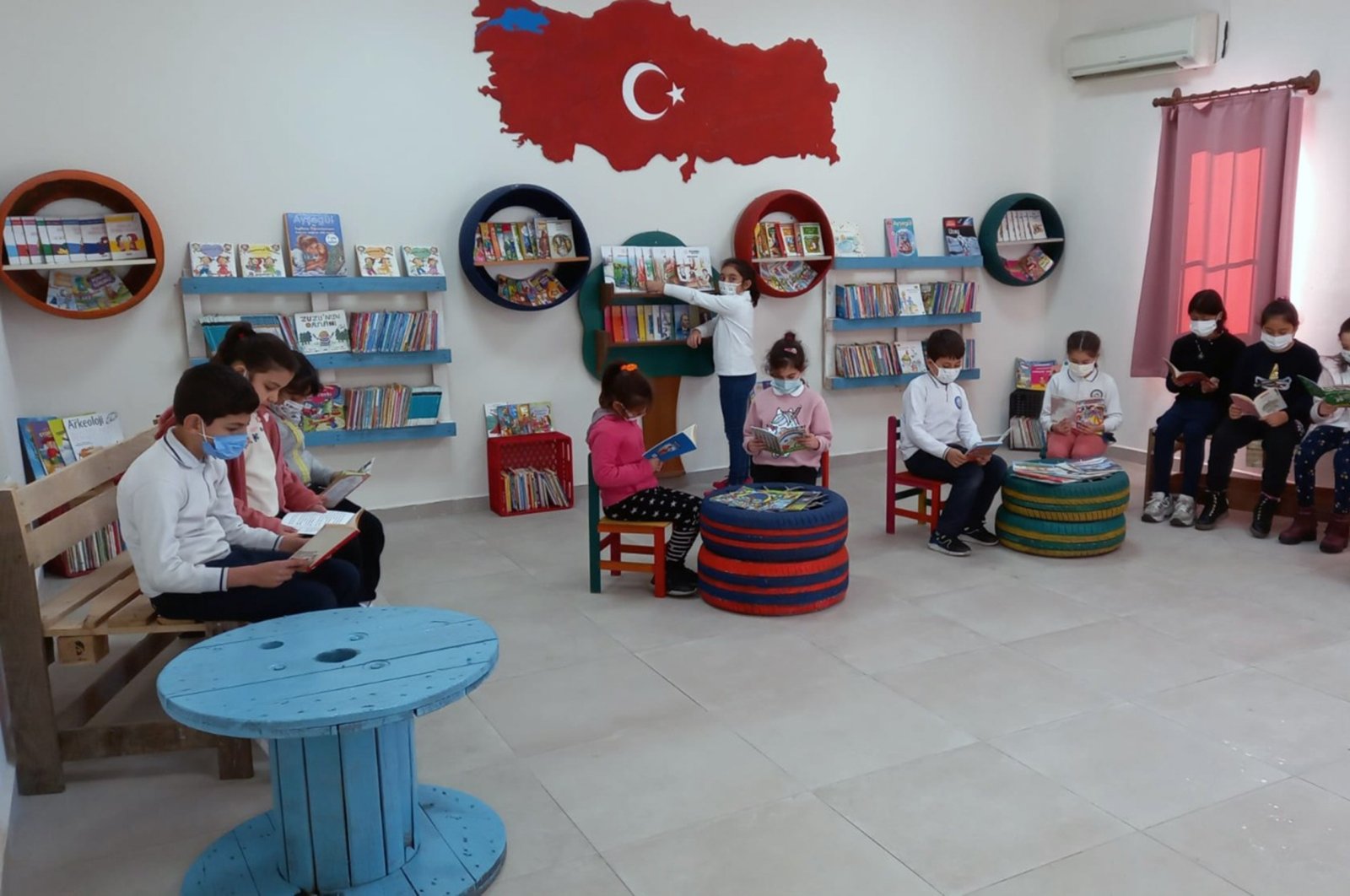
A new initiative by the Ministry of National Education combines Turkey’s "zero waste" policy with efforts to instill a passion for reading in the country's children and youth.
The initiative "No Schools Without Libraries" was originally launched to set up libraries at all schools in the country, especially those in remote areas. Between October 2021 and December 2021, 16,361 libraries were established at schools nationally. Supported by first lady Emine Erdoğan, who is also the patron of the Zero Waste Project launched in 2017, the library program was then combined with the project and in January 2022, 250 new libraries, entirely made of recycled materials, were built across the country.
The first "zero waste" library was installed at a fine arts high school in the eastern province of Ağrı and soon expanded to other provinces. Zero waste libraries consist of bookshelves, tables, chairs and other materials recycled from used materials. Teachers and students from vocational high schools were behind the zero waste libraries where bookworms can indulge in their reading passion at a table that was once a wooden cable reel or pick up their favorite novel from shelves built from compressed discarded stacks of paper. Libraries also stand out with colorful decorations adorning them, again, built from recyclable materials, from glass to plastic.
The libraries host some 42 million books. Minister of National Education Mahmut Özer said their primary purpose was to close the gap between schools in terms of libraries. "Now, each of the 81 provinces have at least one zero waste library," Özer said in a written statement on Tuesday. The minister said Istanbul had the highest number of zero waste libraries at 33.
The Zero Waste Project aims to increase Turkey’s recycling rate to 35% by 2023, while creating employment for some 100,000 people in the recycling industry and saving $2.3 billion (TL 20 billion) yearly. It has found immense interest both in the public and private sectors.
